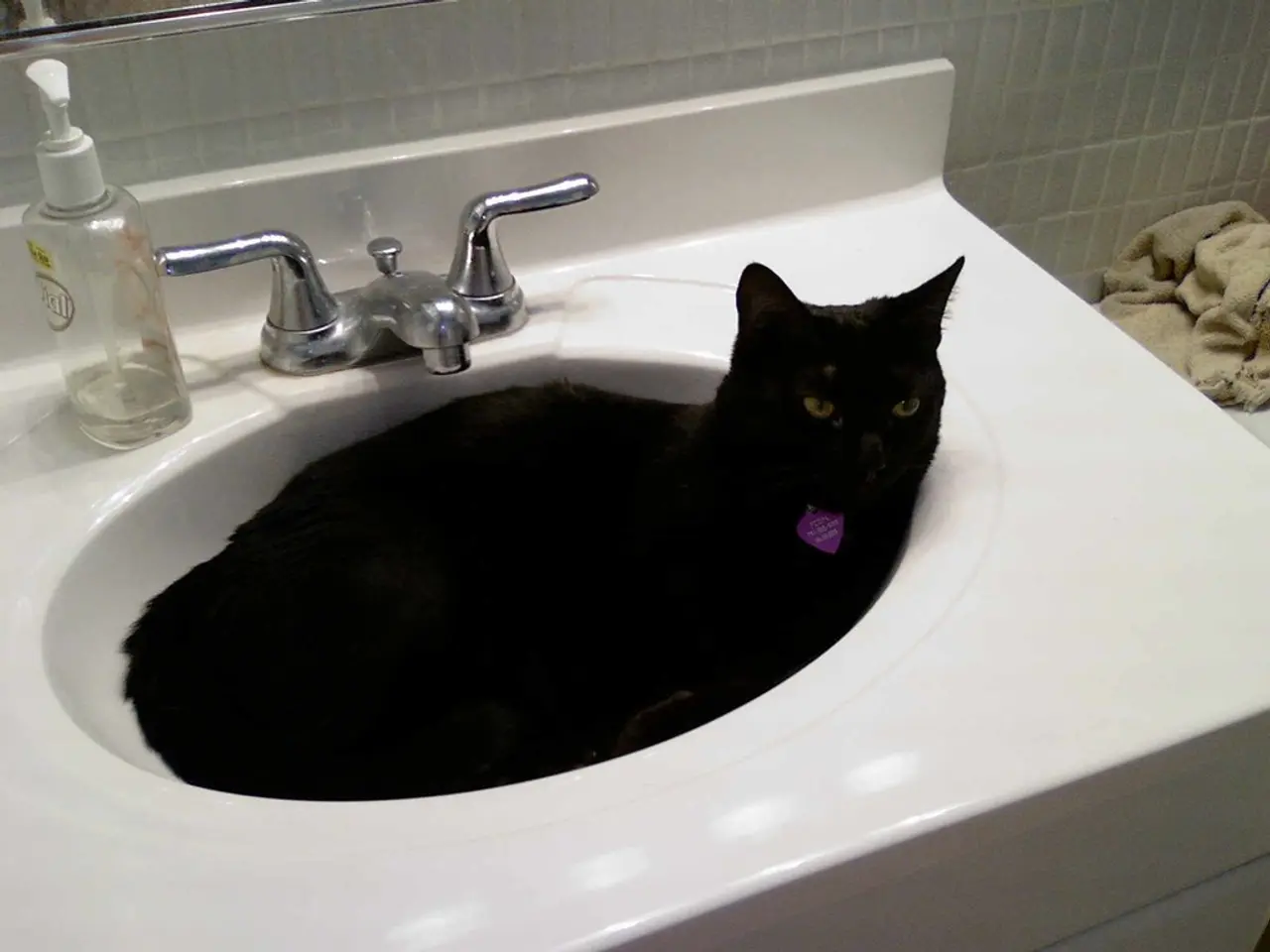Cat Sneezing: Could It Be Allergies? Exploring Possible Causes
Persistent Sneezing in Cats: When to Worry and What to Do
Persistent sneezing in cats can be a cause for concern, as it may indicate various health issues. Common causes include upper respiratory infections (URIs) caused by viruses such as feline herpesvirus (FHV-1) and feline calicivirus, which are highly contagious and similar to human colds. Other causes can be allergies, fungal infections, bacterial infections, chronic respiratory conditions, or even dental disease affecting the upper jaw.
If your cat's sneezing is persistent or frequent, it's essential to take notice. Particularly if the sneezing is accompanied by nasal discharge (clear, cloudy, or colored), swelling around the nose or face, visible discomfort or difficulty breathing, bad breath or signs of dental problems, difficulty eating or chewing, or lethargy or other signs of illness.
Veterinary care is crucial in such cases. Some causes require specific treatments such as antibiotics for bacterial infections or antifungals for fungal infections. Chronic conditions also need medical management for symptom relief.
Keeping your cat indoors, ensuring regular vaccinations, and maintaining a clean environment can support your cat's health. However, even with these precautions, health issues can still arise, and prompt veterinary care is essential to diagnose and treat the underlying cause.
In summary, while occasional sneezing may be harmless, persistent or severe sneezing warrants veterinary evaluation to diagnose underlying infections, allergies, dental issues, or chronic respiratory problems and to provide appropriate treatment. If you notice persistent sneezing in your cat, consult with your veterinarian for guidance and a proper diagnosis.
[1] Feline Sneezing: Causes, Diagnosis, and Treatment. VCA Animal Hospitals. (2021). https://vcahospitals.com/know-your-pet/feline-sneezing-causes-diagnosis-and-treatment [2] Sneezing in Cats. PetMD. (2021). https://www.petmd.com/cat/conditions/respiratory/c_multi_feline_rhinitis [3] Feline Upper Respiratory Infection. Hill's Pet Nutrition. (2021). https://www.hillspet.com/catcare/healthcare/feline-upper-respiratory-infection [4] Dental Disease in Cats. American Veterinary Medical Association. (2021). https://www.avma.org/resources/pet-owners/petcare/dental-disease-cats
- Maintaining a clean environment and ensuring regular vaccinations are vital for supporting your cat's health-and-wellness, as they can help prevent common causes of persistent sneezing like feline herpesvirus and feline calicivirus, which are highly contagious and similar to human colds. (Related to: Persistent Sneezing in Cats: When to Worry and What to Do,keeping your cat indoors, ensuring regular vaccinations, and maintaining a clean environment)
- In cases of persistent or frequent sneezing accompanied by symptoms such as nasal discharge, swelling around the nose or face, difficulty breathing, or signs of mental-health problems like lethargy or other signs of illness, seeking professional medical help is essential, as it may indicate various health issues requiring specific treatments like antibiotics for bacterial infections or antifungals for fungal infections. (Related to: Persistent Sneezing in Cats: When to Worry and What to Do,particularly if the sneezing is accompanied by nasal discharge (clear, cloudy, or colored), swelling around the nose or face, visible discomfort or difficulty breathing, bad breath or signs of dental problems, difficulty eating or chewing, or lethargy or other signs of illness)
- Modern technology and science in the realm of veterinary medicine have provided numerous tools and advances, enabling a better understanding of the causes and treatments for health issues affecting cats, such as upper respiratory infections and dental disease. (Related to: Persistent Sneezing in Cats: When to Worry and What to Do,antibiotics for bacterial infections, antifungals for fungal infections)








